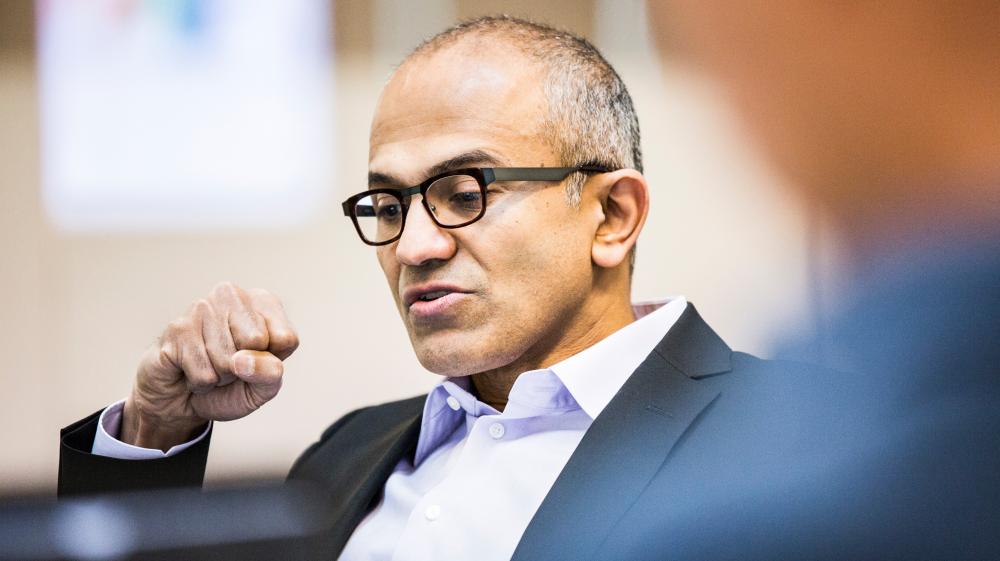Happy Weekend, All Tech readers! This was a fast-paced week for the tech industry, between Microsoft’s CEO announcement, Twitter’s earnings report, Facebook’s 10th birthday and Yahoo/other tech giants’ disclosures of government requests.
What were you talking about this week? Be part of the conversation in our comment section below or tweet at us.
ICYMI
The industry: Facebook turned 10 on Tuesday, and I looked at why the company might continue to grow despite tales of its demise. (To celebrate, Facebook made personalized look-back videos that don’t exactly portray reality.) Over at Microsoft, Satya Nadella, who led its cloud computing platform, was hired as CEO. Here are eight things worth knowing about him. Laura Sydell looks at what role co-founder Bill Gates might play in the company after he steps down as chairman. Meanwhile, a much smaller company is running into problems: After an Uber driver hit and killed a 6-year-old girl, the Uber said it’s not responsible for the damages. Aarti Shahani has that story.
Ongoing in tech and law, a few U.S. senators are spearheading efforts to tighten security standards after the Target credit card breaches, Elise Hu reports. Others, however, say national standards are not the answer. And Fresh Air warns that Internet service in the U.S. is woefully behind other countries — and the reason is a bit conspiratorial.
What’s new: Wikipedia has begun to archive the voices of celebrities, including actor Dustin Hoffman and scientist Jane Goodall. For All Tech‘s weekly innovation, Hu writes about an MIT prototype for a wearable book, a device that augments words on a page by making you actually feel the emotions with vibrations, light and increased heartbeat.
On a more somber note, one woman from Lebanon developed an app that quickly tells loved ones the user is alive after a bombing. And NPR digital producer April Fehling reviews an angsty but compelling game called The Novelist, where the player stealthily mediates a family’s conflicts in the style of a choose-your-own-adventure book.
The Big Conversation
#LessThanStellar: Twitter’s earnings came out this week with a fizzle rather than a bang. The number of Twitter users has been growing but not enough to exceed expectations, and the number of timeline views has decreased (Read: less opportunity for to make money off of advertising). The good news is that the company is making a lot of money, which is exactly what investors want to hear. Quartz has some pretty charts to explain that.
National security cont’d: Several tech giants disclosed information this week about data that the U.S. demands. The Guardian reports that they disclosed how many data requests they got from a secret surveillance court – something they weren’t allowed to do before last week – but the numbers weren’t specific, and they weren’t allowed to itemize the information at all. For example, Yahoo says it received government requests about more than 30,000 accounts. Twitter says it has pressured the Justice Department to allow them to release more detailed information about these requests.
Curiosities
The Verge: A string of thefts hit Bitcoin’s most reputable wallet service
Bad news for Bitcoin, the virtual currency that’s struggling to gain widespread, reputable recognition: its major wallet service was hacked.
Politico Magazine: What Works
A year-long series on innovations in cities around the country. An odd twist: The series is sponsored by JPMorgan and includes a post by Jamie Dimon and Peter Scher.
Wall Street Journal: Assault on California Power Station Raises Alarm on Potential for Terrorism [paywall]
Nine months after an attack on a California power station, this investigative report renewed debate over whether the act was a “dress rehearsal” for future attacks, one former executive said.
9(MDA3MTA1NDEyMDEyOTkyNTU3NzQ2ZGYwZg004))
